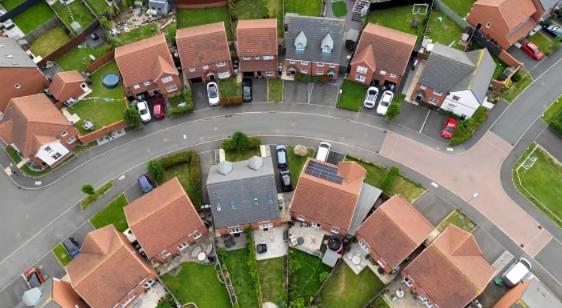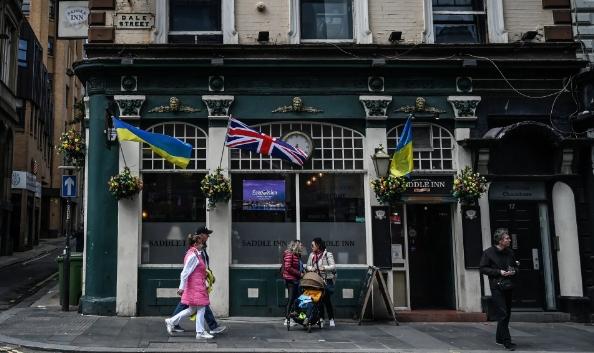As millions of households teeter on the edge of insolvency, the British government is facing mounting calls to take decisive action in providing assistance. The shadow finance minister has sounded the alarm, labeling the situation as a looming “mortgage catastrophe” that demands urgent attention.
Last week, the Bank of England surprised many by raising interest rates by 50 basis points to 5%, surpassing expectations. This marks the 13th consecutive rate hike by the BOE, pushing the base rate to its highest level since 2008.
The unexpected decision, aimed at curbing inflation, will have a significant impact on millions of homeowners in the UK. As numerous mortgage interest rates are directly tied to the central bank’s base rate, borrowers will experience changes in their mortgage repayments. Additionally, renters may also face higher payments as landlords with buy-to-let properties pass on the increased costs of their mortgage repayments.
According to a study conducted by the National Institute of Economic and Social Research (NIESR), a prominent independent think tank, it is projected that the recent interest rate increase by the Bank of England will result in approximately 1.2 million households in the UK (equivalent to 4% of households across the country) depleting their savings by the end of the year due to the elevated mortgage repayments.
According to the NIESR, if the projected number of households running out of savings due to higher mortgage repayments materializes, the proportion of insolvent households in the UK would rise to nearly 30%, equivalent to approximately 7.8 million households. The regions most heavily affected by this situation are expected to be Wales and the northeast of England.
Max Mosley, an economist at NIESR, expressed concern over the impact of the interest rate hike, stating that it will push millions of households with mortgages to the verge of insolvency. Mosley emphasized that given the significant magnitude of this shock, it is unrealistic to expect households to withstand such pressure, and he urged the government to acknowledge this situation.
Credit scores and grace periods
On Friday, U.K. Finance Minister Jeremy Hunt convened a meeting with prominent banks and building societies to address the escalating mortgage crisis in the country.
Hunt announced that several measures were agreed upon with banks, mortgage lenders, and the Financial Conduct Authority. These measures include temporary modifications to mortgage terms and an assurance that borrowers’ credit scores will not be impacted by their discussions with lenders.
The minister further stated that lenders have also agreed to a 12-month grace period, providing a reprieve from home repossession without the homeowner’s consent for those at risk of losing their homes.
Hunt expressed confidence that these measures would provide reassurance to individuals concerned about the impact of high interest rates and offer support to those facing financial difficulties.
“We will remain steadfast in our determination because we recognize that eliminating high inflation from our economy is the only path to alleviate the strain on family finances and businesses,” he further emphasized.
Rachel Reeves, the Labour Party’s shadow finance minister, condemned the government’s handling of the mortgage crisis, characterizing it as a “disorganized approach.”
Reeves took to Twitter on Thursday to express Labour’s stance, stating:
“Unlike the current government, Labour will not remain idle while millions suffer from a mortgage catastrophe caused by the Tories in Downing Street.”
The Chief Executive of the Resolution Foundation, Torsten Bell, predicts that a significant wave of mortgage hardship will occur in the lead-up to the 2024 election.
Shortly after the Bank of England’s interest rate hike, UK Prime Minister Rishi Sunak acknowledged that the government’s goal of reducing inflation to 5% by the end of the year has become more challenging.
During The Times CEO summit, Rishi Sunak emphasized the difficulty of the task at hand, stating:
“I always acknowledged that this would be challenging, and it’s evident that it has become even more demanding in recent months. Nevertheless, it remains crucial for us to persevere and achieve our goal.”

‘There’s a lot of mortgage pain coming’
According to BOE Governor Andrew Bailey, the interest rate rise implemented on Thursday was deemed necessary to sustain the ongoing battle against persistent inflationary pressures.
The latest official figures released prior to the BOE’s meeting revealed a higher-than-expected increase in annual inflation, reaching 8.7% in May. This indicates that consumer prices continue to surpass the BOE’s target of 2%.
Bailey acknowledged the difficulties faced by individuals with mortgages or loans, expressing understanding about their concerns regarding the implications of the interest rate hike. However, he emphasized the necessity of the rate increase, highlighting that postponing it could lead to more severe consequences in the future.
Despite the recent interest rate increase, the Resolution Foundation, a think tank specializing in the challenges faced by low- and middle-income households, has cautioned that borrowers are still confronted with ongoing issues and difficulties.
According to the Resolution Foundation, the current market pricing indicates that households planning to remortgage in 2024 could face an average annual increase of approximately £3,000 ($3,813) or more in their mortgage bills.
Torsten Bell, the chief executive of the Resolution Foundation, warned that a significant amount of mortgage distress is expected, with much of it occurring in the lead-up to the 2024 election.






